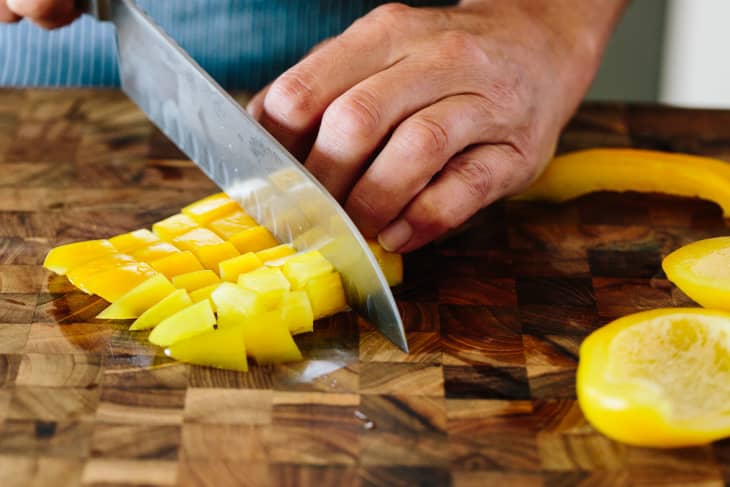5 Important Things to Know About Cutting Boards
Cutting boards are arguably one of the most important tools in your kitchen — it’s near impossible to cook without one, which means it’s equally important to be well-informed about them. From how many to own, to what material to buy, to how to care for one, here are five useful things to know about cutting boards.
1. You need a bigger one than you think.
Buy the largest cutting board your kitchen counter can fit — yes, really. While you may think a small board will do just fine for you, an extra-large board gives you plenty of room to cut without all of those chopped onions piling on top of each other inches from your knife. Trust me — once you have the space, you’ll wonder how you ever used anything smaller.
Get the tip:
You Need a Bigger Cutting Board — No, Bigger
2. If you like the look and price of bamboo boards, learn about them before you buy.
Recently, bamboo cutting boards have become a popular alternative to tried-and-true wood boards. They’re attractive, lightweight, and usually reasonably priced. If you’re interesting in opting for bamboo boards instead of wood, get to know a little bit more about them before you buy. They’re an eco-friendly, sanitary choice, but can potentially dull your knives.
5 things to know: Here’s What You Need to Know About Bamboo Cutting Boards
3. Keep a plastic cutting board on hand for raw meat.
While wood and bamboo boards are the best choice for the majority of chopping and dicing, invest in a medium-sized plastic cutting board for raw meat preparation. That way you don’t run the risk of any dangerous cross-contamination — plus, plastic boards can be sanitized in the dishwasher.
Learn more: The Best Cutting Board for Raw Meat
4. A damp paper towel is all you need to keep your board from sliding.
Don’t worry about buying a cutting board that has fancy grips or rubber edges to prevent it from slipping on your counter. Take a cue from professional chefs and simply place a damp paper towel on the counter before laying down your board — slippage be gone.
5. Wood and bamboo boards need to be maintained properly to make them long-lasting.
While it’s OK to put a plastic cutting board in the dishwasher, never clean a wood or bamboo board this way. The heat can damage them, and the excessive contact with water can cause them to warp and split. Instead, wash them in warm, soapy water and dry them immediately — don’t let them soak in water. Oil them frequently to keep them looking like new.
